
A median OS of 22.9 months was observed with mecbotamab vedotin plus nivolumab in patients with soft tissue sarcoma.

Your AI-Trained Oncology Knowledge Connection!


A median OS of 22.9 months was observed with mecbotamab vedotin plus nivolumab in patients with soft tissue sarcoma.

One patient with metastatic bladder cancer experienced an ongoing metabolic complete response following treatment with aldesleukin/imneskibart.

Combining daratumumab with other agents is one strategy that investigators are exploring in the smoldering multiple myeloma field.

Antibody-drug conjugates are effective, but strategies such as better understanding the mechanisms of action may lead to enhanced care for patients with cancer.

Co-hosts Kristie L. Kahl and Andrew Svonavec highlight what to expect at the 43rd Annual Chemotherapy Foundation Symposium, such as new chemotherapeutics and targeted therapies.

The developers plan to initiate the TELLOMAK 3 trial, which will evaluate lacutamab in Sézary syndrome and mycosis fungoides, in the first half of 2026.

A substantial portion of patients who received daratumumab in the AQUILA study were able to delay disease progression to active multiple myeloma.

Experts discussed supportive care and why it should be integrated into standard oncology care.

Results showed no “deleterious reactions” with chlorotoxin-directed cellular therapy in a small cohort of patients with recurrent glioblastoma.
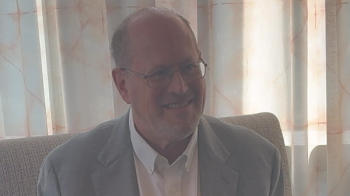
Although 1 of 21 patients with liver-dominant NETs died due to RILD in the phase 1 study, no RILD-induced deaths were observed in the phase 2 trial.
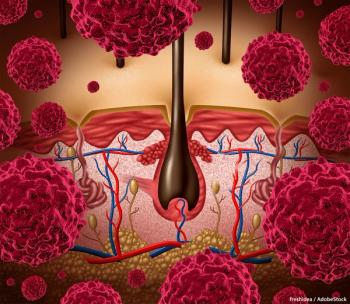
Biomarker analyses and real-world comparisons to refine patient selection are ongoing in the phase 2 PLUME trial.

A novel CAR T-cell therapy may bind with more avidity, rather than affinity, to glioblastoma cells, said Michael Barish, PhD.

Data from the phase 2 INTERACT-ION trial support further investigation of the potential synergistic effect of ezabenlimab plus adaptive chemoradiotherapy.
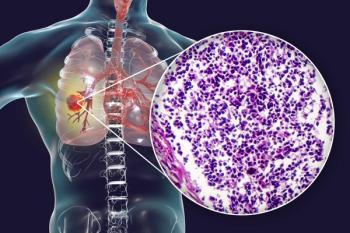
Data from a phase 1a/1b trial show that no patients discontinued STK-012 due to treatment-related adverse effects.

Dato-DXd is being assessed in numerous trials across the breast, lung, and bladder cancer spaces.


While more work must be done to minimize toxicity, antibody-drug conjugates have demonstrated benefits for patients with glioblastoma.
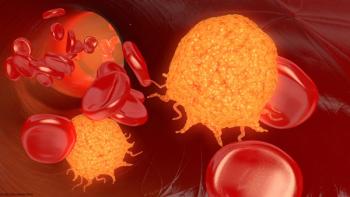
The newly approved dasatinib tablets are therapeutically equivalent and approved in the same indications as reference dasatinib.

Micheal C. Soulen, MD, spoke about his presentation on the CapTemY90 trial at the 2025 NANETS Multidisciplinary NET Medical Symposium.

ADCs demonstrate superior efficacy vs chemotherapy but maintain a similar safety profile that requires multidisciplinary collaboration to optimally treat.

The approval of daratumumab validates the notion of using limited therapy to help delay progression from smoldering disease to multiple myeloma.

The safety profile of palazestrant plus ribociclib in a phase 1b trial was comparable to prior reports of each individual agent.
![“[This approval] will be a quite dramatic change in our philosophy and practice in multiple myeloma," according to Joseph Mikhael, MD, MEd, FRCPC, FACP, FASCO.](https://cdn.sanity.io/images/0vv8moc6/cancernetwork/3cab3ada4c023b68c118240a512e31d72a7f931b-1200x628.png?w=350&fit=crop&auto=format)
Data from the phase 3 AQUILA study support the FDA approval of subcutaneous daratumumab in this population with smoldering multiple myeloma.

Experts highlight the top 5 presentations from ESMO 2025 that may have long-term clinical implications for genitourinary cancer management.
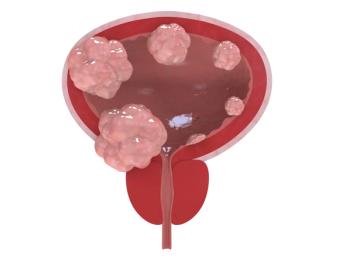
The FDA agreed that data from the UTOPIA trial, with UGN-103 demonstrating a 77.8% 3-month CR rate in patients with LG-IR-NMIBC, support an NDA submission.

Due to certain errors in the 2026 PFS Final Rule pre-publication, ACRO has issued a statement while awaiting the publication of the 2026 HOPPS Final Rule.

According to Aditya Bardia, MD, MPH, FASCO, antibody-drug conjugates are slowly replacing chemotherapy as a standard treatment for breast cancer.

A simulation procedure helped to ascertain chemotherapy tolerability before administering radioembolization therapy for NETs with liver metastases.

The 24-month RFS rates were 95.1%, 81.2%, 69.4%, and 48.4% in patients with stage III melanoma who experienced a pCR, near pCR, pPR, pNR, respectively.

The addition of radioembolization to radiosensitizing chemotherapy may help concurrently treat patients with liver tumors and disease outside the liver.